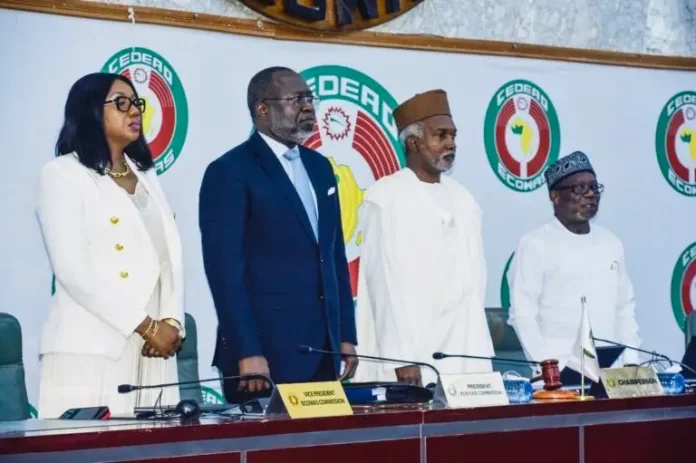News Investigators/ Yusuf Tuggar, Minister of Foreign Affairs, says the U.S.’ plan to include all ECOWAS countries in its visa restrictions will tantamount to creating “non-tariff barriers” to trade relations and partnerships.
Amb. Tuggar, who is the Chairman, ECOWAS Mediation and Security Council (MSC) made this known at the 54th Ordinary Session of the MSC at the Ministerial Level in Abuja on Wednesday.
The News Agency of Nigeria (NAN) reports that U.S. Secretary of State, Marco Rubio, recently announced a list of 36 countries under the country’s visa scrutiny, many of them being ECOWAS members.
According to the new visa proposal, the affected countries are given a 60-day window to meet new visa requirements or face potential travel bans.
Amb. Tuggar, who criticised the proposed policy, warned that it could significantly hinder trade, diplomacy, and regional prosperity between the U.S. and West Africa.
He emphasised that ECOWAS is a region of opportunities with critical resources, and such restrictions would amount to mounting “non-tariff barriers” to potential deals and partnerships between them and the U.S.
“It would, therefore, be a remiss of me if I did not mention the apparent recent decision by the Government of the United States to include all ECOWAS countries in its visa restrictions (Togo was on an earlier list).
“This would be most unfortunate if it comes to pass, because we are a region of opportunities ready to do deals.
“We possess critical minerals and even rare earths such as Samarium from the Monazite found in my home State of Bauchi,” he said.
The minister stressed that ECOWAS member states would like to do deals with the U.S., but noted that visa restrictions were synonymous with slamming non-tarriff barriers to any deals with them.
He also said that West African countries had been part of the international trading system even before the modern state system.
“ECOWAS countries and the U.S. have a rare opportunity to create a partnership based on principles of need.
“We are also a strategic alternative to more distant and politically divergent energy producers. So, we will do deals for our prosperity.
“The only question is with whom? Who takes up the opportunities in our region by allowing government officials and technocrats, business executives and entrepreneurs to travel freely back and forth to close the deals?” He asked.
Earlier in an opening address, Dr Omar Touray, ECOWAS Commission President, expressed delight that the MSC was holding at a critical juncture of ECOWAS’ 50th anniversary, still standing strong amid challenges.
He said that for more than 25 years, the MSC had contributed immensely to the security and stability of the region, through its numerous sessions.
Amb. Touray said that the session was to enable the council to present to participants the political and security situation in the region, including trends and developments.
“We will update on the transition process in Guinea and the negotiation process between ECOWAS and Burkina Faso, Mali and Niger.
“We will be updating you on maritime security in our region, as well as terrorism and transnational organised crime.
“We will also be presenting the outcome of the assessments of our Missions in the Gambia and Bissau,” he said.
The commission’s president said that ECOWAS had also made progress in strengthening the subregion’s regional peace and security architecture.
He said that ECOWAS would present a memoranda to the MSC on its Standby Force Logistics Concept and the ECOWAS Logistics Depot Policies.
Touray said that ECOWAS would also present a memoranda on the Supplementary Act relating to the West African Police Information System (WAPIS) Regional Platform.
He said ECOWAS would also give updates on regional National Early Warning and Response centres, humanitarian situation, and measures against money laundering and financing of terrorism.
“These memoranda outline the key activities of the institutions on strengthening further the instruments of our response to peace and security challenges in region,” he said.
Touray further said that after some difficult time over the last two years, ECOWAS had successfully changed the narrative on the exit of Burkina Faso, Mali and Niger, who recently withdrew from the bloc.
He said that ECOWAS had started direct talks with them toward safeguarding the community’s achievements and building a realistic, fruitful future cooperation in various areas including security and development.
According to him, ECOWAS has improved communication with the exited countries with the view to mitigating the effects of “mis and dis information,” and put in place mechanisms to project its views to the world.
“This is significant as fake news have contributed to the complications of our security and political environment in recent years,” he added.
NAN


